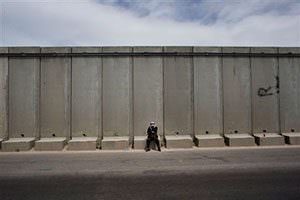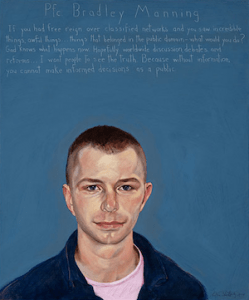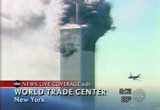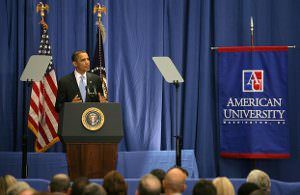John F. Kennedy on World Peace in 1963: ‘No Problem of Human Destiny Is Beyond Human Beings’ (Video)
Fifty-four years after the "Peace Speech," the 35th president's words still inspire hope that building peace is possible.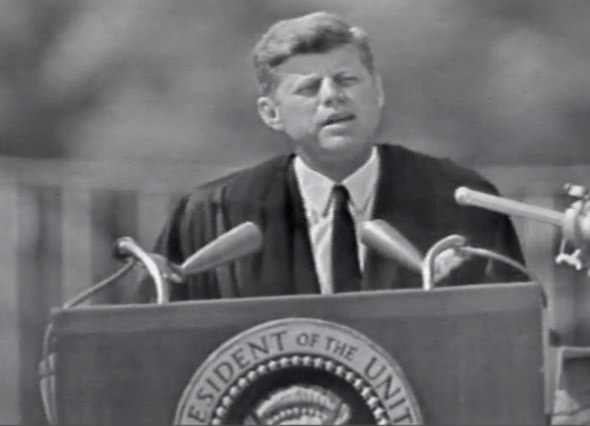
President Kennedy delivering the “Peace Speech” at the 1963 commencement ceremony for American University. (CBS News)
President Kennedy delivered the commencement address at American University on June 10, 1963. The topic was world peace, and the speech remains timely and relevant today.
According to Kennedy’s presidential library site, “the ceremonies began earlier than expected, so the network cameras missed the first half of the President’s prefatory remarks. In his speech the President asks the graduates to re-examine their attitudes towards peace, the Soviet Union, and the Cold War, famously remarking, ‘If we cannot end now our differences, at least we can make the world safe for diversity.’ The President also announces that he, Soviet Premier Nikita Khrushchev, and British Prime Minister Harold Macmillan have agreed to hold discussions concerning a comprehensive nuclear test ban treaty. Finally, he explains that the United States will not conduct atmospheric nuclear tests on the condition that other countries uphold this same promise.”
Ted Sorensen (Kennedy’s main speech writer) was the principal author of the address, considered one of the best commencement speeches ever and a seminal speech of the 20th century.
Kennedy said:
What kind of peace do I mean? What kind of peace do we seek? Not a Pax Americana enforced on the world by American weapons of war. Not the peace of the grave or the security of the slave. I am talking about genuine peace, the kind of peace that makes life on earth worth living, the kind that enables men and nations to grow and to hope and to build a better life for their children — not merely peace for Americans but peace for all men and women — not merely peace in our time but peace for all time.
I speak of peace because of the new face of war. Total war makes no sense in an age when great powers can maintain large and relatively invulnerable nuclear forces and refuse to surrender without resort to those forces. It makes no sense in an age when a single nuclear weapon contains almost ten times the explosive force delivered by all the allied air forces in the Second World War. It makes no sense in an age when the deadly poisons produced by a nuclear exchange would be carried by wind and water and soil and seed to the far corners of the globe and to generations yet unborn.
Today the expenditure of billions of dollars every year on weapons acquired for the purpose of making sure we never need to use them is essential to keeping the peace. But surely the acquisition of such idle stockpiles — which can only destroy and never create — is not the only, much less the most efficient, means of assuring peace.
I speak of peace, therefore, as the necessary rational end of rational men. I realize that the pursuit of peace is not as dramatic as the pursuit of war — and frequently the words of the pursuer fall on deaf ears. But we have no more urgent task.
Some say that it is useless to speak of world peace or world law or world disarmament — and that it will be useless until the leaders of the Soviet Union adopt a more enlightened attitude. I hope they do. I believe we can help them do it. But I also believe that we must reexamine our own attitude — as individuals and as a Nation — for our attitude is as essential as theirs. And every graduate of this school, every thoughtful citizen who despairs of war and wishes to bring peace, should begin by looking inward — by examining his own attitude toward the possibilities of peace, toward the Soviet Union, toward the course of the cold war and toward freedom and peace here at home.
First: Let us examine our attitude toward peace itself. Too many of us think it is impossible. Too many think it unreal. But that is a dangerous, defeatist belief. It leads to the conclusion that war is inevitable — that mankind is doomed — that we are gripped by forces we cannot control.
We need not accept that view. Our problems are manmade — therefore, they can be solved by man. And man can be as big as he wants. No problem of human destiny is beyond human beings. Man’s reason and spirit have often solved the seemingly unsolvable — and we believe they can do it again.
Fifty-four years later, the “Peace Speech” continues to inspire hope that building peace is possible, a belief one writer has asserted is validated by science.
According to the 2017 “Global Peace Index” — an annual report produced by the Institute for Economics and Peace — the United States ranks 114th in world peace (h/t to Truthdig commenter rosemariejackowski for pointing this out), while Iceland is No. 1.
Watch Kennedy’s full “Peace Speech” below.
Read the text of Kennedy’s speech here.
—Posted by Eric Ortiz
Your support matters…Independent journalism is under threat and overshadowed by heavily funded mainstream media.
You can help level the playing field. Become a member.
Your tax-deductible contribution keeps us digging beneath the headlines to give you thought-provoking, investigative reporting and analysis that unearths what's really happening- without compromise.
Give today to support our courageous, independent journalists.

